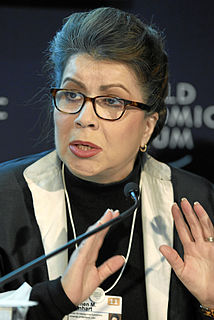A Quote by Ben Bernanke
I was a professor at Princeton University. And, in that capacity, I studied for many years the role of financial crisis in the economy.
Related Quotes
The Fed contributed to the financial crisis, keeping interest rates too low for too long. I give them credit for responding and stabilizing the economy and the financial sector during the crisis. But then they tried to do too much with quantitative easing that went on forever, just dramatically exploding their balance sheets.
Fifty years ago, great schools like the University of California and the City University of New York - as well as many state colleges - were tuition free. Today college is unaffordable for many working class families. For the sake of our economy and millions of Americans, we must make higher education more affordable.
The essence of the this-time-is-different syndrome is...rooted in the firmly held belief that financial crises are things that happen to other people in other countries at other times; crises do not happen to us, here and now. We are doing things better, we are smarter, we have learned from past mistakes. The old rules of valuation no longer apply. Unfortunately, a highly leveraged economy can unwittingly be sitting with its back at the edge of a financial cliff for many years before chance and circumstance provoke a crisis of confidence that pushes it off.
The Fed has a lot of power in the economy because it has a big impact on the supply and cost of credit, that is, interest rates. It also plays a key role in supervising banks and historically has seemed to take it easy on the banks when it shouldn't have, such as in the lead up to the financial crisis.
The financial crisis and the Great Recession demonstrated, in a dramatic and unmistakable manner, how extraordinarily vulnerable are the large share of American families with very few assets to fall back on. We have come far from the worst moments of the crisis, and the economy continues to improve.



































